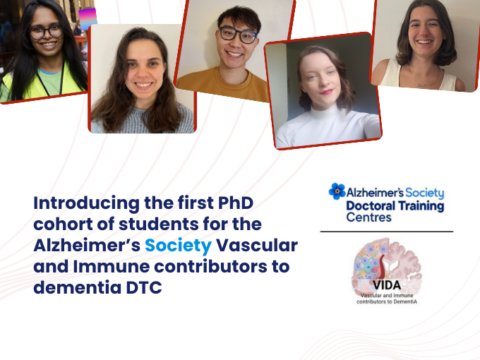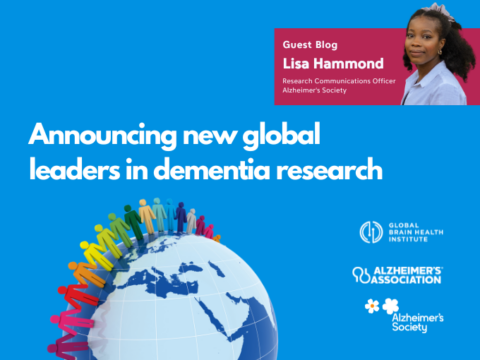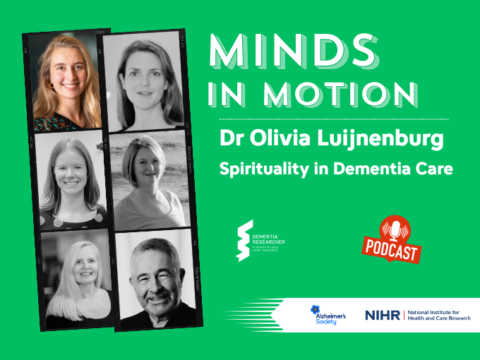 People living with dementia face inequalities as a result of their condition, from diagnosis to the end of their lives.
People living with dementia face inequalities as a result of their condition, from diagnosis to the end of their lives.
You have only to look at diagnosis where less than two-thirds of people living with dementia in England and Northern Ireland get a diagnosis (it’s around half in Wales) to realise there is a serious unfairness at play which leaves people affected by dementia getting a raw deal.
Now, a new report from the Office of Health Economics (OHE) commissioned by Alzheimer’s Society, has dug deeper into the unfair and avoidable differences faced by people living with dementia and their carers.
Through their research they identified a staggering 110 inequalities. Inequalities such as access to diagnosis or support in adjusting to living with dementia right through to impact on personal finances or access to clinical trials.
The research also exposes how dementia does not impact everyone equally.
There is an imbalance which affects how different people experience dementia. This is linked to factors such as where people live, level of deprivation, age, culture and ethnicity. All of these affect their experience of dementia.
The report indicates, for example, that if you live in a rural area, you are less likely to get a diagnosis.
For carers, inequalities were mainly related to their gender, finances, health and wellbeing.
Health inequalities within dementia are affecting the quality of care that people receive and the opportunities they have to lead their lives.
To make positive change for everyone affected by dementia, we need to better understand and address the impact of health inequalities on their lives.
Gaps in knowledge
The OHE research highlights how one of the main barriers to reducing inequalities is the lack of evidence and data in existence about inequalities and the impact they have.
How many times have we heard ‘what gets measured, gets done?’
Chief Medical Officer, Chris Whitty, mentions this ‘old cliche’ in his 2023 annual report, saying it remains true.
Data on conditions prevalent in older age helps inform service improvement and delivery, he argues – a point he reiterated during Alzheimer’s Society’s Annual Conference in May.
If decisionmakers and policymakers don’t have data about the inequalities which exist in dementia, it’s harder to build a case for positive change. It’s also harder to target resources where they’re most needed.
What is clear by the sheer number of inequalities identified in OHE’s report is that our health and social care systems are not set up to best support the varying needs of different people living with dementia.
Gender, socioeconomic circumstances, ethnic and cultural groups, age groups, disabilities, deprivation, rurality and even dementia type all affect the kind of support a person living with dementia will need – but care and support is not yet adapted accordingly.
A £2m investment
As a charity, Alzheimer’s Society has committed to ending the devastation caused by dementia.
Without dealing with inequalities, we cannot hope to achieve this vision.
As a scientist, I find myself turning to the research community for solutions!
We want to work with the best and brightest minds in our dementia research community to find solutions which can affect change.
We’re making an investment of up to £2million, asking research teams to come forward with their solutions to tackle one or more inequalities.
I want to hear from teams led by either an academic or an NHS institution with a project idea which can bridge inequalities within diagnosis and post-diagnostic care.
Teams should work in collaboration with a delivery partner, such as an Integrated Care System (ICS) or Board (ICB), to test and prove the effectiveness of an intervention which can ultimately be applied throughout healthcare systems in the UK.
The scale of the challenge of dementia
Research commissioned by Alzheimer’s Society estimates that almost 1 million people are living with dementia. By 2040 this number will surge to 1.4million.
Every one of them deserves fair access to healthcare, social care and support.
It is shocking to think that there are 110 inequalities faced by people affected by dementia.
What we must remember is that this imbalance is completely avoidable – there is opportunity – we can do something to remove this unfairness and we will.
Find out more about the research call
The research call is open to expressions of interest (EOIs) until September 6th, 2024. Funding will be awarded by March 2025.
A webinar will be held on July 12th – Registration link.
Read the report from Office for Health Economics
Fiona Carragher
Author
Fiona Carragher is Alzheimer’s Society’s Director of Research and Influencing. She plays a pivotal role in the Society’s vision to create a world without dementia: leading their world-class research programme. A Consultant Clinical Biochemist by background, Fiona has worked in multi-professional teams for two decades at a range of large hospitals, including the Royal Hospital for Sick Children (Edinburgh) and Kings College Hospital (London) – with a focus on providing high quality, innovative services. Prior to joining the Society, Fiona was the Deputy Chief Scientific Officer for NHS England.

 Print This Post
Print This Post





